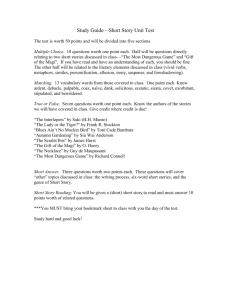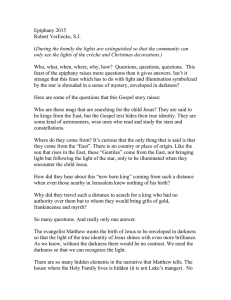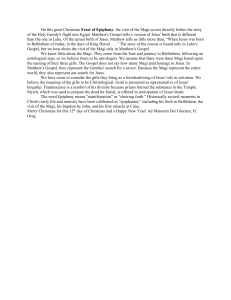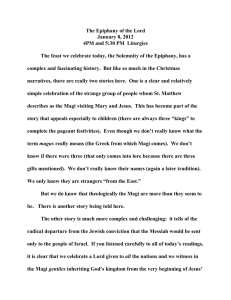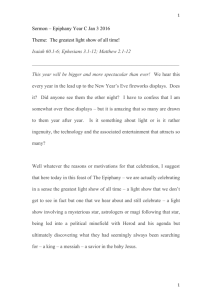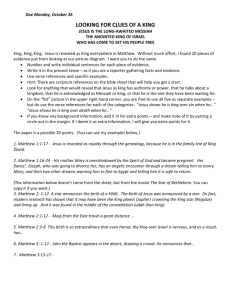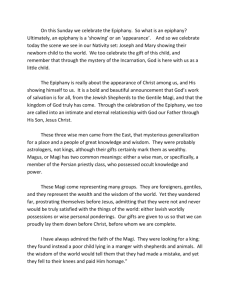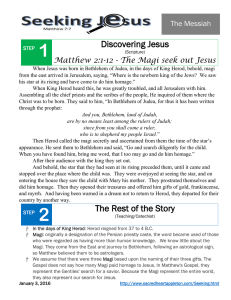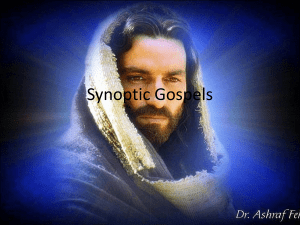Epiphany - Christ the King Parish
advertisement
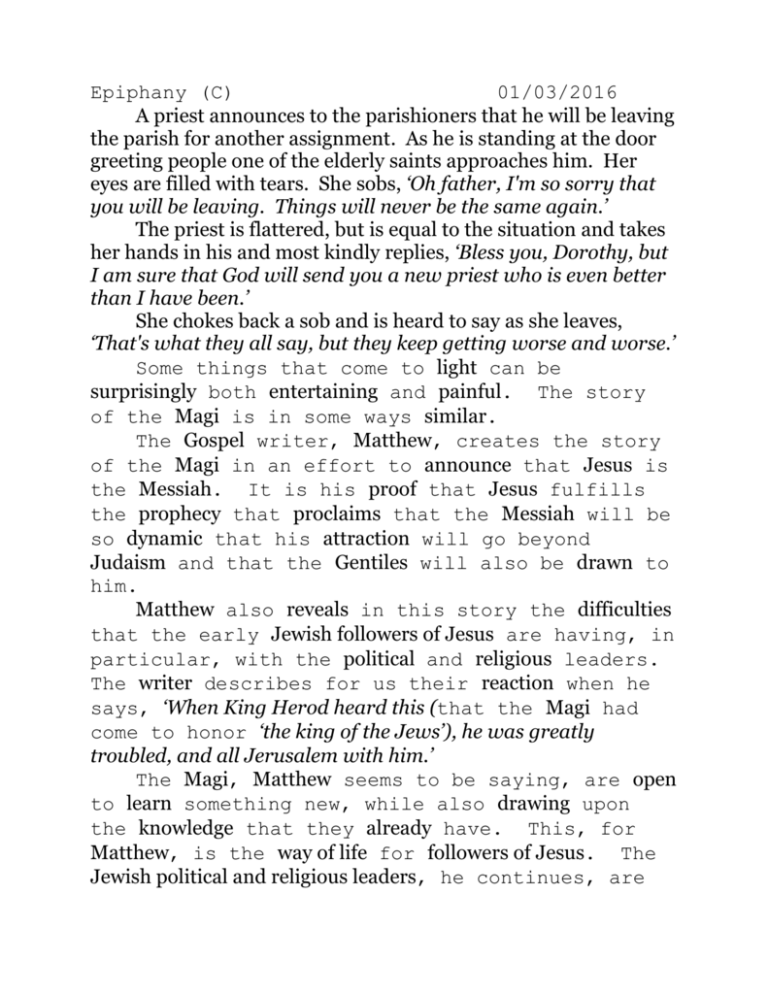
Epiphany (C) 01/03/2016 A priest announces to the parishioners that he will be leaving the parish for another assignment. As he is standing at the door greeting people one of the elderly saints approaches him. Her eyes are filled with tears. She sobs, ‘Oh father, I'm so sorry that you will be leaving. Things will never be the same again.’ The priest is flattered, but is equal to the situation and takes her hands in his and most kindly replies, ‘Bless you, Dorothy, but I am sure that God will send you a new priest who is even better than I have been.’ She chokes back a sob and is heard to say as she leaves, ‘That's what they all say, but they keep getting worse and worse.’ Some things that come to light can be surprisingly both entertaining and painful. The story of the Magi is in some ways similar. The Gospel writer, Matthew, creates the story of the Magi in an effort to announce that Jesus is the Messiah. It is his proof that Jesus fulfills the prophecy that proclaims that the Messiah will be so dynamic that his attraction will go beyond Judaism and that the Gentiles will also be drawn to him. Matthew also reveals in this story the difficulties that the early Jewish followers of Jesus are having, in particular, with the political and religious leaders. The writer describes for us their reaction when he says, ‘When King Herod heard this (that the Magi had come to honor ‘the king of the Jews’), he was greatly troubled, and all Jerusalem with him.’ The Magi, Matthew seems to be saying, are open to learn something new, while also drawing upon the knowledge that they already have. This, for Matthew, is the way of life for followers of Jesus. The Jewish political and religious leaders, he continues, are too possessive of what they think they already have for them to be open to learn something new… even if they are expecting it. They are stuck in what they already know and possess, and are blinded by their fear that what they know will be taken from them if they learn something new. The Magi, because of their willingness to combine what they know with learning something new, gain entrance into the spiritual world where paradox is the norm. Here, joy and sorrow do not cancel each other out. They co-exist. Here, the natural and the supernatural do not cancel each other out. They co-exist. Hence, the Magi are led by natural occurrences in their search for God embodied in human flesh. Matthew is telling his community (and us) that everyone is invited to live in both the natural world and the spiritual world simultaneously. Only those, however, who are willing to draw from what they have learned and to be open to learn something new, will hear the invitation and see the human and the divine manifested as one. 2
